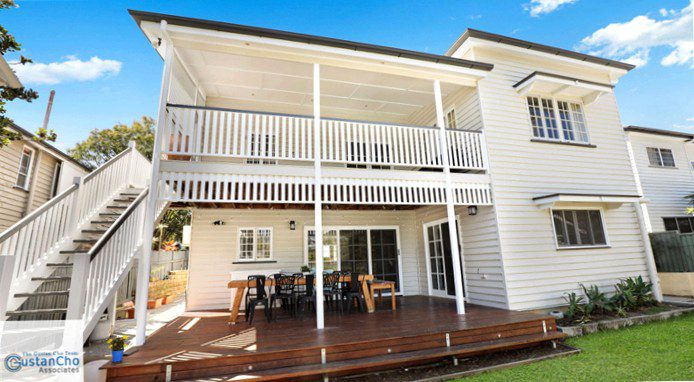
In accordance with HUD's 2020 Non-Occupant Co-Borrowers Guidelines, non-occupant co-borrowers can be added to the primary borrower.
- To qualify for a 3.5% down payment home purchase FHA loan with non-occupant co-borrowers, the non-occupant co-borrower must be related by law, blood, or marriage from the primary borrower
- HUD's 2020 Non-Inmate Co-Borrower Guidelines allow non-inmate co-borrowers who are NOT related by blood, law or marriage to be added to the primary borrower
- However, if the non-inmate co-borrower is not related by blood, law, or marriage to the primary borrower, a 15% down payment is required
- The primary borrower can add as many non-income co-borrowers to the FHA loan as needed
- The non-incumbent co-borrower they don't have to live in the same state as the property
- Under Fannie Mae and Freddie Mac Agency Mortgage Guidelines, nonresident co-borrowers need not be related to the primary borrower on conventional loans
- However, FHA is different
- Only those related to the primary borrower by law, blood, marriage can qualify for a 3.5% down payment home purchase FHA mortgage
In this article, we will discuss and address the 2020 HUD Non-Occupant Co-Borrower Guidelines for FHA Loans.
Benefits of adding non-occupant co-borrowers
Both FHA and conventional loans allow for non-income co-borrowers.Conventional loans do not have to have the non-income co-borrower to be related to the primary borrower by law, marriage, blood To qualify for a 3.5% Home Purchase FHA loan with non-income co-borrower, the non-income co-borrower must be related to the primary borrower by blood, marriage, law. FHA has all non-occupant co-borrowers who are not related to the primary borrower to be added on the FHA loan
There are no limits to the number of co-borrowers that can be added to the primary borrower for FHA loans. Borrowers who have high debt-to-income ratios and/or cannot use the income they earn can benefit by adding non-income co-borrowers to qualify. Adding co-borrowers is common for self-employed borrowers and 1099 wage earners, where they take many deductions from their income tax returns.
2020 HUD Non-Occupant Co-Borrowers Guidelines On Credit And Income
There are times when adding a co-borrower may not help.
- When multiple borrowers have a mortgage, lenders use the lower median credit score of all borrowers
- For example, if the primary borrower meets the minimum credit score requirement but the co-borrower does not, the primary borrower will not qualify for a mortgage because the lender will use the co-borrower's median credit score
- Mortgage rates are assessed using the median credit score of the borrower with a lower credit score
- Co-borrower's income is taken into account
- Adding co-borrowers with low or negative income or without qualifying income does no good
- All co-borrowers must meet the agency's minimum mortgage guidelines
- This is especially true for waiting periods after bankruptcy and foreclosure
- Regardless of the documents provided by the main borrower, the non-co-borrower must do the same thing
All co-borrowers must meet HUD's borrower guidelines.
2020 HUD Non-Occupant Co-Borrowers Guidelines On Who Are Eligible

If you make a 15% down payment on an FHA loan, the non-inmate co-borrowers do not have to be related by blood, law or marriage. However, if you only want to buy a house with 3.5% down, all non-inmate co-borrowers must be related by blood, marriage, law.
Here are the admission guidelines of law, blood, marriage:
- Spouses and ex-spouses
- Parents
- Siblings
- Children and stepchildren
- Aunts & Uncles
- Cousins
- Nieces and nephews
- Close friends with a documented long history of friendship
co-borrower must be a U.S. citizen and / or Permanent Resident legal Alien.
2020 HUD Non-Occupant Co-Borrowers Guidelines On Non-Eligible Borrowers
Non-inmate co-borrowers who have a financial interest in the property may not qualify for. The following people cannot qualify:
- Buy and / or sell real estate agent
- Seller of the property in question
- Homebuilder
- House reviewer
- Real estate attorney of the buyer and / or seller
- The loan officer and /lender
Co-borrowers of a mortgage have ownership rights to the property. Non-incumbent co-borrowers are liable for the mortgage if the primary borrower defaults but does not own the property.
Risks of cosigning for the mortgage
Many non-resident co-borrowers are concerned about the risks associated with cosigning for a family member on a mortgage.
- Will cosigning keep them from getting a mortgage in the future?
- There are risks associated with co-signing for a mortgage
- If the primary borrower is late with monthly mortgage payments, it affects the co-signer's credit score
- Late payments to co-signer affect their credit score
- If primary borrowers go into foreclosure, foreclosure will report on cosigner
- It will prevent the cosigner from obtaining a future mortgage
- The co-signer must comply with the mandatory waiting period after foreclosure to qualify for a mortgage
- However, if the principal borrower makes timely mortgage payments for at least 12 months, the cosigner does not have to use the cosigned mortgage when qualifying for a new mortgage
- This only applies if the primary borrower can prove 12 months of payment history
The co-signer must prove that he or she is not responsible for granting the co-signed mortgage loan.
Removing the co-signer from the mortgage

Mortgage borrowers can qualify to refinance their current home loan after six months from closing. As long as you have made six monthly payments to the mortgage servicer, homeowners can refinance FHA and conventional loans at one interest rate and refinance and take out the cosigner from the original loan. Most homeowners with co-signers will refinance once they meet the minimum debt-to-income ratio requirements after closing.